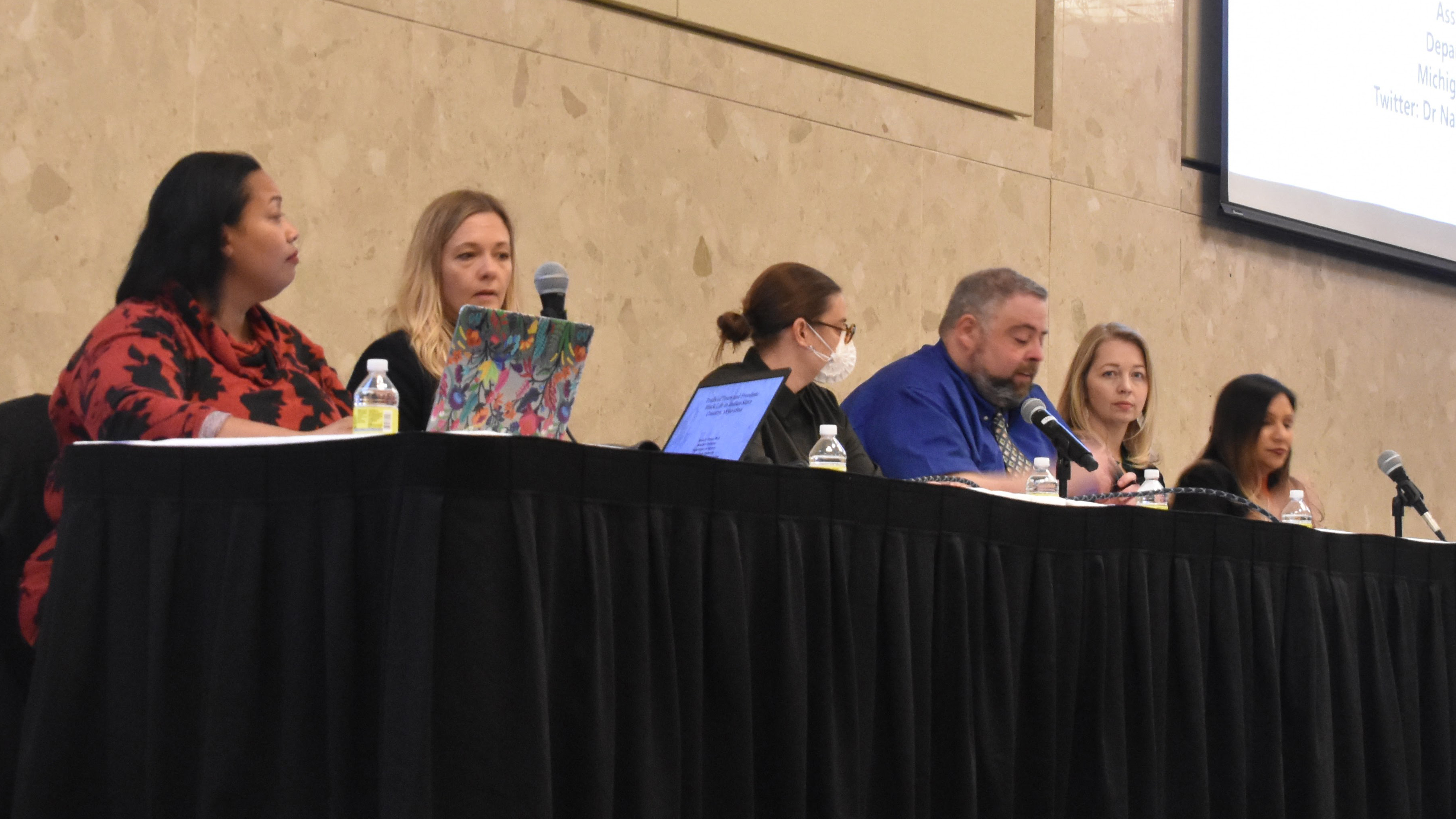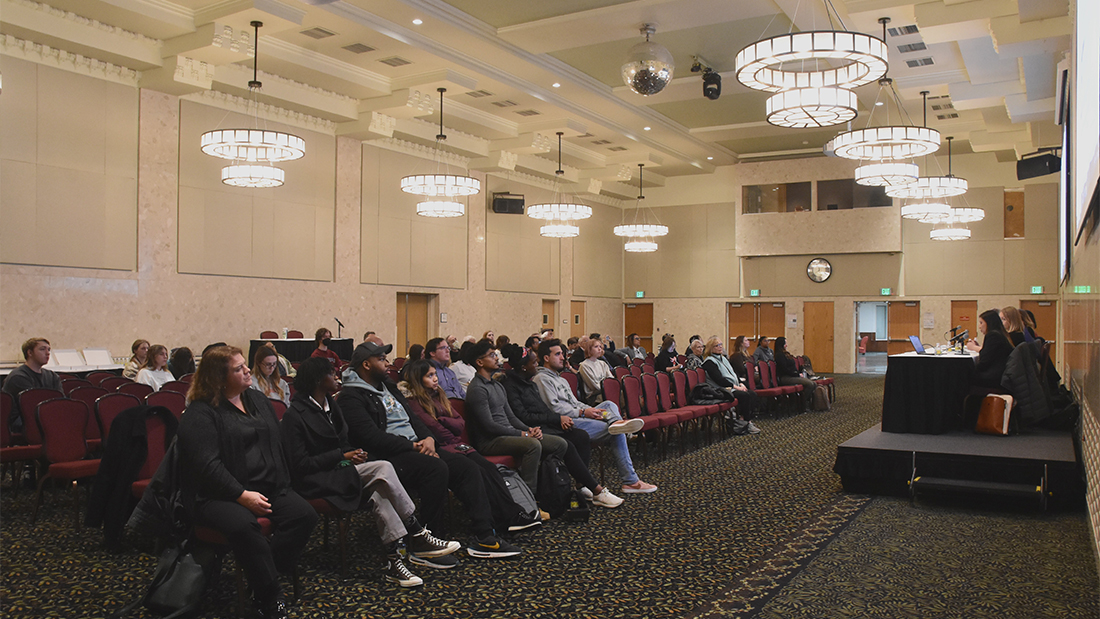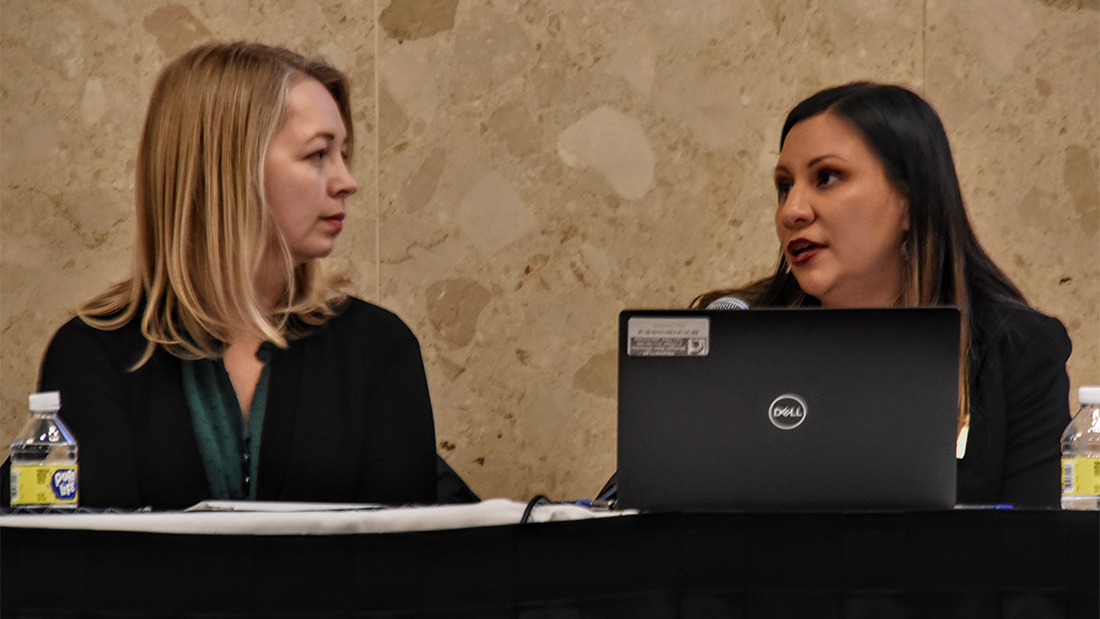MSU PLS professor participates in "The Nature of Inequality" discussion
December 7, 2022 - Claire Smith
This article originally appeared on the website for James Madison College.
Sharper Focus/Wider Lens, a cross-disciplinary panel series hosted by Michigan State University Honors College, featured faculty members from across campus speaking to the various ways inequality exists domestically and abroad.
Moderated by Michigan State University’s Matthew Zierler, associate professor of international relations in James Madison College and associate dean of the Honors College, “The Nature of Inequality” was held at 7 p.m., Nov. 30 in the MSU Union Ballroom.

Panelists from three different colleges on MSU’s campus, offered historical context and cited particular policies and cultural practices that have shaped disparities around the world.
The conversation began with Nakia Parker, assistant professor in the Department of History in the College of Social Science, who provided a historical perspective of inequality in the U.S. by discussing the relationship between the forced removal of Native American people and chattel slavery.
For first-year James Madison student Caroline Beckrow, who is also studying human biology in Lyman Briggs College, Parker’s presentation was especially powerful.
“I was really intrigued by the first presentation by Parker, about the relationship of Indigenous peoples and enslaved people and how Indigenous people persisted with chattel slavery and the way that led to greater inequality for the Black population,” said Beckrow, “It was a really tragic story, but it opened my eyes to the history of the Indigenous population.”

Ana Bracic, assistant professor in the Department of Political Science in the College of Social Science, continued the panel presentations with a discussion that included a theory of hers called the “exclusion cycle,” which consists of anti-minority culture that allows discrimination to persist. This causes minorities to create strategies for survival which majority members are resentful of because they do not realize they are the reason these strategies were created. Bracic has more about this theory in her book “Breaking the Exclusion Cycle” and on her website.
Jennifer Sykes, associate professor in James Madison College, identified how welfare and child tax credits contribute to economic inequality.
“There is nothing normal or natural about income inequality in this country,” said Sykes. She highlighted how many inequalities are the result of choices made by the government, with the implication that they could be easily remedied with the correct policies.
The final presentation by Deyanira Nevárez Martínez, assistant professor of urban and regional planning in the College of Agriculture and Natural Resources, addressed Latinx homelessness. Martinez pointed to the common Latinx practice of multi-generational housing and how in poorer communities, this often leads to overcrowding.

Deyanira Nevárez Martínez answers Jennifer Sykes’ question during “The Nature of Inequality” Q&A portion. Photo by Claire Smith.
Not only was this event a good opportunity for faculty, students and community members to consider how inequities manifest in different spaces and recognize the historical context, but also offered panelists an opportunity to learn from each other. Faculty members from different disciplines were able to take their highly specialized research projects and connect them all under the lens of inequality.
“In my work, I think about how development interventions, which are often aimed to lift people out of poverty, so often reproduce or deepen the problems they are intended to address,” said Flaim. “I conduct most of my work alongside Indigenous and rural communities, whose lives and livelihoods are regular targets of state and capital development; so, the panel provided an attempt to discuss the stories that people share with me when I do my fieldwork.”

